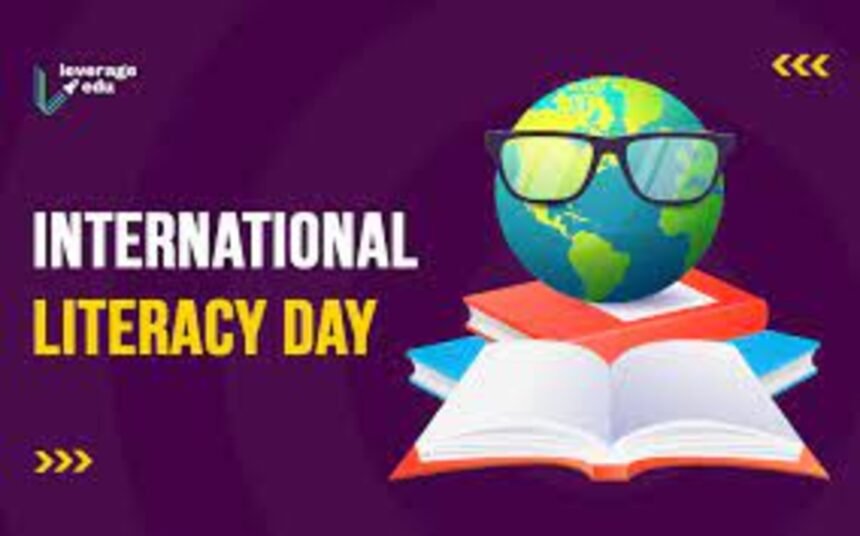Introduction:
On September 8th, the world comes together to celebrate International Literacy Day, a day dedicated to highlighting the importance of literacy and promoting a global commitment to eradicating illiteracy. As we mark International Literacy Day in 2023, it’s crucial to reflect on the significance and rich history of this observance.

The Significance of Literacy:
Literacy is the foundation upon which individuals build their futures. It empowers people, fosters social inclusion, and opens doors to countless opportunities. Moreover, literacy is not just about reading and writing but also encompasses essential skills like critical thinking, problem-solving, and digital literacy in today’s technology-driven world.
A Global Challenge:
Despite the progress made in recent years, illiteracy remains a pressing global challenge. According to UNESCO, around 773 million adults worldwide are still unable to read and write, with women disproportionately affected. This stark reality underscores the continued need for initiatives to improve literacy rates.
The History of International Literacy Day:
The journey of International Literacy Day began in 1966 when the United Nations Educational, Scientific and Cultural Organization (UNESCO) proclaimed September 8th as International Literacy Day. The aim was to raise awareness about the importance of literacy and its role in addressing global issues such as poverty and inequality.
Each year, International Literacy Day focuses on a specific theme, shedding light on various aspects of literacy. Themes in recent years have included “Literacy for a Human-Centered Recovery: Narrowing the Digital Divide,” emphasizing the role of literacy in the digital age, and “Literacy and Multilingualism,” highlighting the importance of linguistic diversity in literacy efforts.
The Role of Education:
Education is the key to unlocking literacy’s potential. Quality education systems that are accessible to all, irrespective of gender, socio-economic status, or geographical location, are essential for achieving global literacy goals. Governments, NGOs, and educational institutions play a vital role in promoting literacy by developing and implementing effective educational programs.
Digital Literacy in the Modern World:
In today’s digital era, being literate extends beyond traditional reading and writing skills. Digital literacy is a fundamental component of modern education. It equips individuals with the ability to navigate the digital landscape, access information, and harness technology for personal and professional growth.
Conclusion:
International Literacy Day serves as a reminder of the transformative power of literacy and the work that remains to be done in ensuring that everyone has the opportunity to learn and thrive. As we commemorate this day in 2023, let us recommit ourselves to the global goal of achieving universal literacy, knowing that through literacy, we can illuminate minds and transform futures, ultimately creating a more equitable and prosperous world for all.







